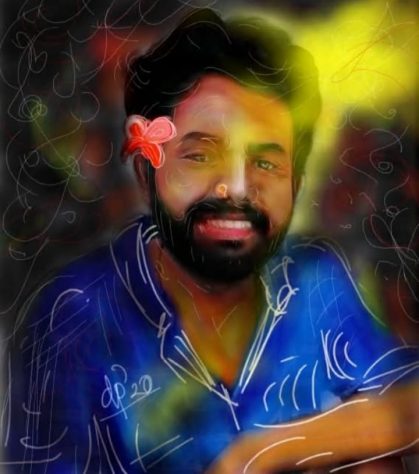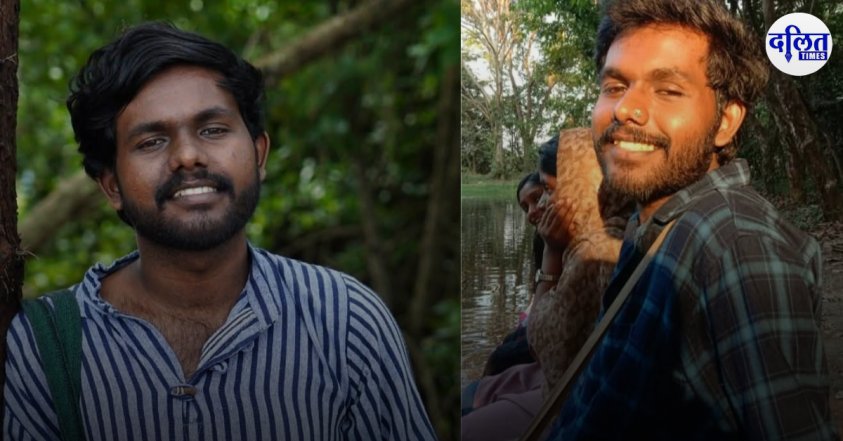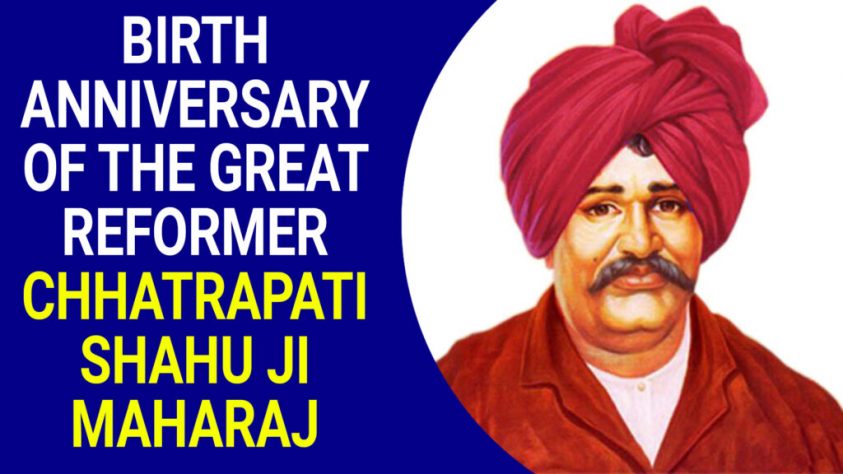Aadi is recipient of Kerala sahithya academy award 2023 titled “young poetry award ”. And he is recipient of Prof.Mary Juliet endowment award for M.A dissertation in 2024. He is recipient of K.V sudhakaran Memorial endowment and A Ayyappan memorial Endowment…
(Bindu Ammini, Advocate, Writer, Dalit Feminist & Advisor of Subaltern Media)
Aadi alias Aadarsh E is a Bahujan and queer writer, activist, and scholar from Kerala, India. Born on April 10, 1999 to Reena K.P. and Satheesh Kumar E one sibling named Amith.E. He born at Chevayoor and residing now at Mayanad both places belongs to Kozhikkode,Kerala. He pursued his education at Savio Higher Secondary School, Devagiri, and later at CHMKM Government College, Koduvally. He completed his postgraduate studies at Sree Sankaracharya University of Sanskrit, Kalady, and is
currently pursuing a PhD at the same institution. He done his B.Ed at Government College of Teachers Education in Kozhikode on 2022
Aadi’s literary journey is deeply rooted in his lived experiences as a Bahujan queer individual. His works are published in various leading online and offline publications, where he consistently challenges dominant narratives and amplifies marginalized voices. His poetry collection Pennappan has been included in the curricula of M.G. University and Calicut University in Kerala—a significant milestone for Bahujan and queer representation in academia.
Aadi is recipient of Kerala sahithya academy award 2023 titled “young poetry award ”. And he is recipient of Prof.Mary Juliet endowment award for M.A dissertation in 2024. He is recipient of K.V sudhakaran Memorial endowment and A Ayyappan memorial Endowment.
His upcoming books will publish DC books in 2025 are collection of essays regarding queer politics, caste etc., poetry collection
Mentors and Influences
Aadi draws inspiration from thinkers like Dr. B.R. Ambedkar, Ayyankali, and Sree Narayana Guru, whose philosophies of social justice and resistance shape his activism. Along with these figures, Angela Davis, James Baldwin, and bell hooks have continuously questioned oppression and fought for equality across caste, race, and gender. Their words have transcended geographical boundaries, inspiring those who struggle to be heard.

Marsha P. Johnson, a key figure in the LGBTQ+ rights movement and the Stonewall uprising, has had a profound impact on Aadi. Johnson played a pivotal role in the 1969 Stonewall uprising and later co-founded Street Transvestite Action Revolutionaries (STAR) with Sylvia Rivera to support homeless trans and queer youth. Known for her vibrant personality, she was a beloved figure in New York’s Greenwich Village, often called the “Mayor of Christopher Street.” She was also involved in the arts, modeling for Andy Warhol and performing with drag troupes. In her later years, she became an AIDS activist with ACT UP. Her mysterious death in 1992, initially ruled a suicide, remains a subject of controversy and investigation.
Aadi deeply resonates with Johnson’s defiance against oppression and her unwavering commitment to queer rights. The Stonewall protests, in particular, have influenced his activism.
In Indian academia and literature, Dalit scholars continue to carve out space for Bahujan and queer voices. Aadi’s work aligns with this movement, striving to break down the barriers that silence marginalized writers.
Breaking Barriers in Literature
Literature has long been dominated by privileged castes and heteronormative voices. The inclusion of Bahujan and queer voices in mainstream literature is a relatively recent phenomenon. Until 2014, mainstream discourse in Kerala often dismissed Bahujan contributions to literature, exposing the exclusionary nature of academia and publishing.
The dominant structures of caste and patriarchy have historically silenced these voices, dismissing their narratives as non-literary or irrelevant. The first recognized transgender writer in India, Vijayarajamallika, had to fight relentless societal resistance before her words found recognition. Following her, writers like Daya Gayathri have continued this struggle, proving that survival in literature is not just about talent but also about resistance.
Aadi continues this legacy, challenging the erasure of subaltern voices. His poetry collection Pennappan is now part of the curricula at M.G. University and Calicut University—an ironic achievement, considering that the very institutions that once denied his legitimacy as a writer now teach his work.
Writing in Blood and Tears
For marginalized and subaltern communities, writing is more than an artistic endeavor—it is survival. The lines “My people write no poems but write suicide notes, sometimes even unable to write one,” encapsulate the harsh reality of caste and queer oppression. Aadi’s works stem not from privilege but from lived trauma, systemic discrimination, and resilience.
“Our literature is born not just from knowledge but from the brutal experiences of discrimination, exclusion, and violence.”
Despite some inclusion in academia, the literary world remains an exclusionary space for Bahujan and queer writers. The elite-controlled publishing industry often dictates what qualifies as ‘literature,’ dismissing marginalized voices as irrelevant or non-literary. Kerala’s literary space, historically dominated by Nair and Namboodiri writers, resists the entry of subaltern voices while simultaneously blaming them for their absence.
The recognition of these voices in mainstream academic institutions marks a shift. The inclusion of Aadi’s poetry collection Pennappan in university curricula is a testament to this change. Ironically, the same educators who once questioned Aadi’s right to education now teach his poetry to students. There is a father everyone called “Pennappan” that literally means father having women identity. That term using to defame the queer identity by the kerala society but not by Aadi. The name of the collection of the poetry itself shows the political clarity of Addi in queer politics. This collection of poem translated by Sachidanandhan in the name of “ Women Dad” and Published it in Indian Literature Journal of Kendra Sahitya Acadamy.
Aadi’s Activism: Fighting Queerphobia in Academia
Aadi’s activism extends beyond literature to direct confrontations against casteism and queerphobia. While studying at Government College of Teacher Education, Kozhikode, he faced homophobic and misogynistic remarks from faculty members. A teacher even posted defamatory content about him on social media. Worse, his peers remained silent, unwilling to challenge the oppression within their own institution.
Refusing to be silenced, Aadi asserted his stance—“My body, my choice, my rights.” When he wrote this statement on the classroom board, his teacher demanded its erasure, claiming it was a “threat.” This incident exemplifies how institutions police marginalized voices while upholding oppressive structures.
One of his professor in B.Ed College alleged “ ’Aadarsh’ is a public nuisance . He has been writing vulgar(according to that professors view point)statements in social media accounts. Further his presence itself collapses the reputation of this institution which has great legacy”
Aadhi’s outcry on social media caught the attention of Higher Education minister of KeralaMs.Bindu R and express her solidarityand advising him “ Be bold, be strong…This too will pass..” it shows the empathetic approach towards the issue that raised by Aadhi.
The Politics of ‘Coming Out’ for Queer, Bahujan Individuals
Aadi challenges the mainstream narrative of ‘coming out,’ arguing that it is a privilege not accessible to all queer individuals. He states:
“For whom does the process of coming out appear to be easier? We can’t say every queer person should come out. For a Bahujan person, caste is the immediate oppressive barrier. I haven’t yet come out to my family because I’m unable to prioritize it among other struggles.”
This perspective highlights the intersectionality of caste and queerness—issues that Savarna discourse often ignores.
Literature as Resistance
Aadi rejects the elitist idea that writers possess an ‘aura.’ His writing is shaped by survival, not literary romanticism. He critiques the exclusion of Bahujan and queer voices from Kerala’s literary history, arguing that mainstream literature continues to be dictated by Savarna gatekeepers.

He challenges the claim that Thunchaththu Ezhuthachan is the father of Malayalam language, asserting instead that Ambedkar and Ayyankali were the ones who gave marginalized communities the right to education and literacy.
Aadi as a Scholar
Aadi’s research focuses on the intersection of caste, gender, and sexuality, aiming to challenge dominant narratives and produce knowledge that reimagines queer history. He emphasizes that while queer individuals have always existed in Kerala, historical records largely erase their presence. The absence of documented queer bodies in history is not due to their nonexistence but rather to systemic erasure by Brahmanical, casteist structures.
In rare instances where queerness is mentioned—such as in the Mahabharata and Ramayana—it is framed through the lens of Brahmanical morality, reinforcing negative or mythical interpretations rather than acknowledging real queer lives. Aadi’s work seeks to dismantle these exclusionary narratives by placing caste at the center of discussions on sexuality and gender.
His research prioritizes alternative sexualities in a positive light, challenging the dominant heteronormative and casteist frameworks that shape discourse on gender and desire. He also critically examines the production of knowledge by queer individuals, arguing that their lived experiences and perspectives are of paramount importance in this field. Through his scholarship, Aadi strives to create an intellectual space where Bahujan and queer voices are not just acknowledged but recognized as central to understanding history and society.
The Future of Marginalized Voices in Literature
Despite these steps forward, the literary world remains a difficult space for Bahujan and queer writers. Aadi’s work and activism symbolize a shift in Kerala’s literary landscape. While challenges remain, the resistance continues. As more marginalized writers claim space, the question is no longer whether Bahujan and queer individuals have a literary tradition—it is whether the world is ready to listen.
Their inclusion in syllabi and publishing circuits is still limited, and mainstream acceptance is often conditional. However, literature has always been a weapon of resistance, and every published poem, novel, or essay by a marginalized writer is an act of defiance against the historical erasure of their existence.
Aadi’s struggle continues, but so does the writing. As more voices rise, the question is no longer whether Bahujan and queer individuals have literature—but whether the world is ready to listen.


